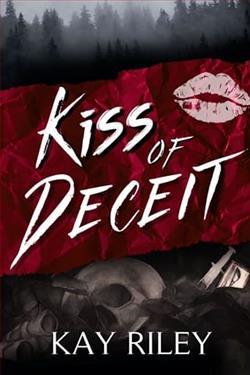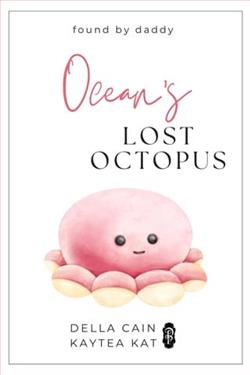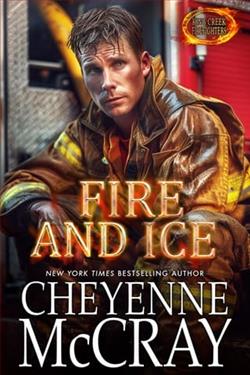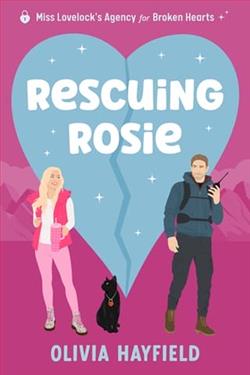Page 12 of The Obsession (Filthy Rich Americans 2)
“I’ve set up an account in your name,” he said, “with enough money to cover your tuition for your final year at Etonsons, along with general expenses. Any single purchase above five thousand will require my approval, but you will have anything you need.”
Surprise drew my gaze back to him, but skepticism took over. I was terrified of what he’d want in return. “In exchange for?”
Macalister’s blue eyes blinked. “In exchange for you receiving a first-rate education. I’ve seen your transcripts and know you’re an exceptional student. I only want to see you achieve your full potential.”
I stumbled over his words before they truly hit me. “I didn’t give Etonsons permission to release my transcripts.”
It was the first time I’d ever seen amusement play out on Macalister’s face. His full lips lifted just enough to be classified as a smile. “Do you think that was difficult for me?”
“No,” I said dimly. I echoed what he’d told me at my interview in his boardroom. “There’s no problem big enough money can’t solve.”
“Yes.” He was pleased I remembered. “Your coursework has been excellent so far, but I have some thoughts about your options for next semester.”
Of course he did.
“I am curious, though.” He leaned closer, like he was capable of holding a friendly conversation with me. “What is it about economics that appeals to you?”
I floundered. How was I supposed to put it into words? I had to give him an answer. “I . . . like variables.”
He paused. “Excuse me?”
“Math is precise.” I tucked a lock of hair behind my ear as I assembled my thoughts. “You always know the answer, where one plus one equals two. But in economics, everything can be equal and still not give you the answer you expect. The exact same product sold in a perfectly competitive market can be a boon for one company and a bust for another.”
I was aware I was speaking in simplistic terms to a man who was likely more intelligent than I was, but he made me nervous. At least I sounded coherent.
“Maybe their manufacturing costs are too high,” I continued, “or their marketing was off, or they’ve priced themselves too competitively. I want to know what’s causing it. I like finding the variable.”
Macalister made a noise of satisfaction, even as he shook his head. “You like puzzles,” he corrected.
“Yes,” I said. He wasn’t wrong. “I like a very specific type of puzzle.”
When a genuine smile expanded on his lips, he didn’t look quite so terrifying. He simply looked mortal. “I also like puzzles.” He tilted his head an evaluating degree. “How did you find your game theory class?”
The question was innocent, but a sixth sense of awareness tingled down my back. Like I saw the edges of a trap peeking out from beneath its camouflage but disregarded it. “It’s been my favorite one so far.”
Heat warmed his eyes. “It was my favorite as well. You’re so much like me, Marist.”
The shudder that clattered through my body was unavoidable. My name on his lips, coupled with the idea I was remotely like him, was too much not to react to. He watched my shoulders quiver, and his expression shifted like he was pleased. He enjoyed having such an effect on me.
My voice was timid when I wanted it to be strong. “We’re not alike.”
“You grew into a levelheaded young woman,” he said, “despite your financially inept parents, even as they spoiled you and your sister shamelessly. Like you, I grew up with enormous wealth and stayed sensible throughout it.” He listed them like bullet points he’d prepared ahead of time. “You speak directly. You do what needs to be done, even when it’s difficult. And most importantly, you understand when people need to be saved from themselves.”
I launched up out of the chair, literally running from what he’d said. I needed to put distance between us as quickly as possible. But I’d only made it a few steps toward the window when I heard his chair creak, announcing he’d stood as well.
Macalister’s voice was surprisingly hesitant. “I don’t say this to upset you.”
There was a table beside the window, and I set a hand on it for support while I tried to slow my ragged breathing. The glossy black and white pieces of the chessboard nearby were carved figures of art. I wanted things to be like that. Structured rules, clearly defined lines, and to know which team everyone was playing for.
I had to change the topic. “May I ask you a question?”
“Yes.”
The word came from just over my shoulder, and I closed my eyes. His proximity constricted every muscle in my body, turning me into one of the chess pieces at my fingertips.
“You don’t seem like the type of man to be friends with Mr. Lambert.”
His laugh was empty. “That’s a statement, not a question . . . but a correct one. I’m not, nor will I ever be, friends with Wayne Lambert.” He emphasized the word like it was revolting. “He’s just a means to an end.”















